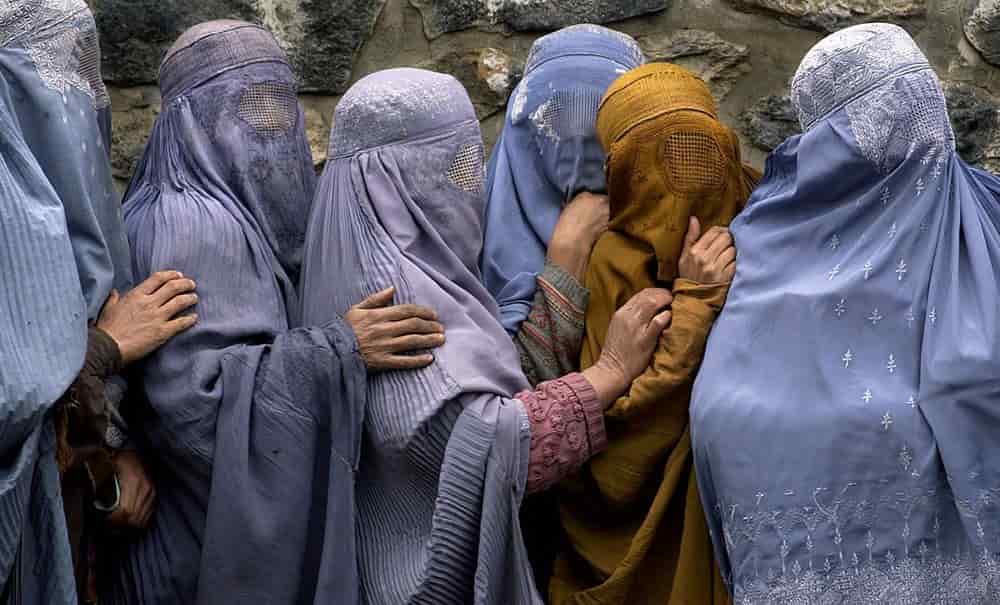Highlights :
- Afghanistan is under Talibani rule and hence women’s rights will be snatched once again in the name of religion.
- Afghan women gained their rights of equality under the 1964 constitution, but these rights were taken away by the Taliban during the 1990s.
- The situation of Afghanistan under Tablian’s rule is affecting women in various negative ways.
The patriarchal customs like keeping women in purdah and gender segregation are deeply rooted in the history of Afghanistan. Women have been treated as slaves and have been oppressed by their male counterparts for centuries. Women’s rights were and are a luxury for Afghan women as they were denied basic human rights as well. Under the name of religion, it was implied that women are only suited to stay at home and nurse the children and that they have no other purpose than serving their male counterparts.
Also Read – Chris Donahue, The Last American Soldier, Leaves Afghanistan Before 31st August
Somehow, Afghan women finally got their share of respect and rights in the constitution of 1964, but they were taken back by the Taliban during the 1990s. Under their rule, not only were women denied access to opportunities like having a job or education, but they were also told not to speak loudly as no man should hear their voice.
The Patriarchal Beliefs Of Taliban
The patriarchal beliefs were laws in Afghanistan when the Taliban took over. Women were forced to wear a burqa if they wanted to get out on the streets, no matter how the weather was. On top of that, they couldn’t step out of the house without a male blood relative.

The exploitation of women In Afghanistan started again. From trafficking to rapes to women being married off as sexual slaves, women were treated as an objects that men can “own”. The local religious leaders were ordered to provide Talibanis with a list of girls over the age of fifteen and windows under forty-five for “marriage” with their fighters, and women had no right to speak up for themselves or to say “no”.
Patriarchal And Misogynistic Rules For Afghan Women
People still question how the rules put forward by the Taliban can be termed as “patriarchal” and “misogynistic”. This can be answered with the following examples:

- A garden that was named “ Women garden” was renamed “Spring Garden”. This kind of modification was done for every place that included the word “women” in its name.
- Afghan women were forbidden to wear high-heeled shoes because no man should hear their footsteps, as that could “excite” men.
- The deep-rooted misogyny can be seen by how photographing, filming, and displaying pictures of women in newspapers, books, shops, and even at home was banned.
- Women were deprived of medical treatments during the rule of the Taliban as male doctors were not allowed to treat women and no women were allowed to work officially.
- The educational rights of women were taken away by this group because of the mindset that women do not belong in the outer world and that they are just objects controlled by men.
Also Read – The Taliban: Meaning, Identity, And Intention
The Future Of Afghan Women Is In Danger
For twenty years, women in Afghanistan were going to school, pursuing the career they wanted to, and were still fighting for an equal stand in society. They excelled in every aspect of their life and in various careers. They were artists and teachers, politicians and doctors, and much more. Because of the sudden takeover by the Taliban, women of Afghanistan are scared.
The comeback of all the patriarchal rules in the name of religion is highly likely. On one hand, the Taliban stated that they will respect women and will let them do their job as per “Islam”, and on the other hand, news of Talibani officers beating a woman for not cooking a “delicious meal” is spreading around the world wide web.
Women are already restricted from going to school. The basic human right to get educated has been taken by the Taliban, and once again no woman can go out without wearing a burqa. The desperation of women who want to get out of the country says everything about their current situation and a future full of despair.
For the more latest news, visit current affairs.












